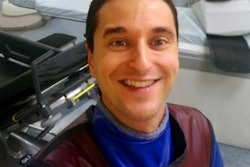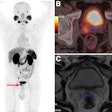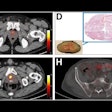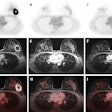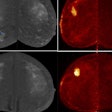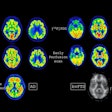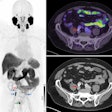
BRUSSELS - Brexit could be devastating for the nuclear medicine sector, disrupting the free flow of radioisotopes and movement of medical imaging staff between the U.K. and the rest of the European Union (EU), medical experts and politicians warned in Brussels on Wednesday.
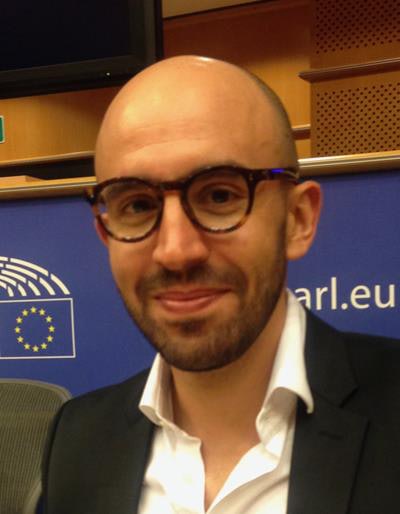 Dr. Miguel Reis Ferreira from London.
Dr. Miguel Reis Ferreira from London.At a special meeting of the European Parliament on the impact of Brexit on healthcare professionals, Dr. Miguel Reis Ferreira, a clinical research fellow at the Institute of Cancer Research and Royal Marsden National Health Service (NHS) Trust in London, said the U.K. needed to act urgently to avoid a crisis in nuclear medicine.
"This could be disastrous," he said. "If I do not have access to scans, I would be extremely concerned about the health of my patients."
New regulatory arrangements will be needed to keep the U.K.'s access to nuclear materials and skills, but work on this has been held up by the deadlock in the Brexit negotiations with the EU. The U.K. negotiators would eventually compromise and accept EU regulations, even after the U.K. leaves the union in March 2019, according to Ferreira.
"I expect pragmatism to prevail. No politician wants to prevent people getting cancer treatments in Britain, one of the most developed countries in the world," he said. "It may not be what some Brexit voters wanted, but it will have to happen: Clinical directives will come from abroad."
Wajid Khan, the U.K. Labour Party member of the European Parliament (MEP) who chaired the meeting, said he was deeply worried about the impact of a "messy Brexit" on the medical sector, and he warned of a cancer treatment crisis if the U.K. could not secure nuclear medicine supplies after it leaves the EU and the European Atomic Energy Community (Euratom).
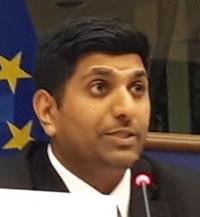 Wajid Khan, the U.K. Labour Party MEP.
Wajid Khan, the U.K. Labour Party MEP."Brexit is a threat to healthcare in the EU, not just to the UK," he said.
About 1 million U.K. patients a year receive treatments or diagnostic scans that use radioisotopes produced in nuclear reactors, and 80% of these products are imported, mostly from other EU countries.
"Once Britain leaves Euratom, it could be at the back of the queue when it comes to scans," Khan added.
Tight Euratom regulations surround the transportation of radioactive materials, and the rapid decay of the products, means they must reach patients quickly to be effective, he noted.
"There is a whole supply chain that includes just-in-time procedures," Khan said. "If we do not have a Brexit solution that allows for the free flow of medicines and equipment, that will be very damaging for the sector," he said.
Khan also warned the departure of the European Medicines Agency (EMA) from its current Canary Wharf headquarters in London to Amsterdam in 2019 would undermine the U.K.'s ability to approve new medicines in the imaging field and provide the sector with safety guidance.
"Once outside the EU, the U.K. will have to set up its own regulatory agency from scratch, and this could mean patients facing long delays," he said.
The fate of radiologists and other imaging specialists who work in radiology was raised by Dr. Jacques de Haller, the president of the Standing Committee of European Doctors (CPME), which represents national medical associations across Europe. More than 21,000 medical doctors with EU training are currently licensed to practice in the U.K., and de Haller warned about the continued recognition of their professional qualifications, their continued mobility and residency rights, and the continuation of their joint research projects.
"Medicine has to take place in a space that is free from undue interference," he said.
Junior doctors' views
His views were echoed by Dr. Kitty Mohan, president of the European Junior Doctors Association. She pointed to a recent British Medical Association survey showing how many EU doctors are thinking of leaving the U.K. after Brexit: 44.7% of EU doctors say they are currently considering leaving the country, and less than 10% of the sample is confident of a positive outcome to the Brexit talks.
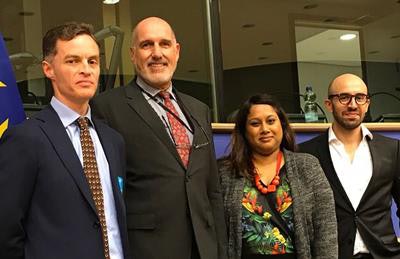 From the left: Dr. Trevor Duffy, Dr. Jacques de Haller, Dr. Kitty Mohan, and Dr. Miguel Reis Ferreira.
From the left: Dr. Trevor Duffy, Dr. Jacques de Haller, Dr. Kitty Mohan, and Dr. Miguel Reis Ferreira."It's not clear whether EU students studying in the U.K. who graduate after March 2019 will benefit from the mutual recognition of qualifications," she said. "We need urgent assurances for these students now."
There was particular concern about the Republic of Ireland, whose intricate political and social relationship with the U.K. is threatened by Brexit, notably through a hard border between Northern Ireland and the Irish Republic. Trevor Duffy, who chairs the Irish Medical Organization, gave the example of a cancer patient from the Irish border county of Donegal who used to take five hours to travel each way for treatment in Dublin but was able to nip across to Northern Ireland in a fraction of the time when border checks were eased 20 years ago.
"These political decisions can be life-changing," he said. "The politics is beyond us as doctors, but we can give advice on what solutions might work and what won't work -- and so we should be involved."
Irish MEP Mairead McGuinness, a European Parliament vice president, added her voice to concerns. "I lose sleep about this," she said. "I know how well it works now. But when we haven't even resolved the big political issues -- which should be done by June -- then we cannot start the other issues on healthcare."





